
| |
Volume 3, Number 141 |
|
"There's a Jewish story everywhere" |
|
Today's Postings:
Tuesday, June 23, 2009
{Click on a link to jump to the corresponding story. Or, you may scroll leisurely through our report}
|
INTERNATIONAL
    
Growing suspicions between Americans, Israelis .... by Ira Sharkansky in Jerusalem
Several friends have cautioned me that public opinion in America is turning against Israel, and public opinion in Europe is more intense in its opposition. READ MORE
Another futile presidential attempt at appeasement ... by Alex Grobman in Englewood, New Jersey
“There is reason to believe that [the president] cherished the illusion that presumably he, and he alone, as head of the United States, could bring about a settlement –if not a reconciliation—between Arabs and Jews. ..." READ MORE
Ahmadinejad vs. Moussavi: tweedledee vs. tweedledum ... by Jonathan Spyer in Herzliya, Israel
One would need a heart of stone not to be moved by the scenes currently emerging from Iran: Hundreds of thousands of youthful demonstrators, taking to the streets to express their frustration at the restrictions of life under a theocratic oligarchy ... READ MORE
Texas A&M Hillel establishes Huánuco, Jewish community ... by Rabbi Peter Tarlow in College Station, Texas
In March of 2008, I traveled to Huánuco with five of my Hillel students to found a Jewish community about 400 kilometers from Peru’s capital city of Lima. During the past year these efforts began to root and enough progress was made to return to Huánuco, this time with eleven more students. READ MORE
National/International Jewish News Roundup
AIPAC seeks funds for its lobbying efforts in behalf of Israel's defense READ MORE
16 Yemenite Jews fly to Israel in secrecy READ MORE
State and federal officeholders will attend RJC's 'Summer Bash' READ MORE
UCSD's Rahimi becoming media commentator about Iran situation READ MORE
Survivors often transmit Holocaust experiences nonverbally to family READ MORE
Max Fisher Square dedicated in Jerusalem by Peres, Birkat, others READ MORE
San Diego County Jewish Community news roundup
Chabad schedules 3-part series on Jewish views of death and practices READ MORE
Soille Hebrew Day School holds fundraiser at Hall of Champions READ MORE
U.S. is too timid in Iran ... letter from Bruce Kesler READ MORE
Changes reported at XLNC1, San Diego Metropolitan magazine READ MORE
JUDAISM
 Yism'chu sung by Harold Orbach offers Shabbat delight .. by Cantor Sheldon F. Merel in San Diego Yism'chu sung by Harold Orbach offers Shabbat delight .. by Cantor Sheldon F. Merel in San Diego
Yism’chu is chanted on Friday evening, and contains twenty-four Hebrew words said to correspond to the twenty four hours of Shabbat. READ MORE
JEWS FOR JUDAISM WRITING CONTEST
In Berlin synagogue, Yom Kippur is a day of 'atunement' ... by Joanna Wright in Seattle, Washington READ MORE
BIBLE IN POP CULTURE
Heaven and earth were finished, Genesis 2:1 VIEW IMAGE
Go to top of right column
| |
ARTS
 
Book review: A bubbe wins friends for new kid at school ... by Donald H. Harrison in San Diego
This is an uplifting story for pre-teen readerS, with a simple enough plot. READ MORE
Coming Home, another winner from Athol Fugard ... by Cynthia Citron in West Hollywood, California
You might think that a 77-year-old playwright who has written a highly-acclaimed, prize-winning play (and sometimes two) nearly every year for 53 years might be running out of steam by now. Well, not so with South African/ English/ American playwright Athol Fugard, who has just written what, in my view, is the best work of his career. READ MORE
JEWISH HISTORY
Adventures in San Diego Jewish History
Highland Springs Resort Starts Another Gala Summer Season READ MORE
Israel Film To Be Shown at Ken Theatre READ MORE
Local Resident Wins Jewish Lit. Award READ MORE
Lucille Rubel Mourned by All READ MORE
Fund In Final Plea For Cash In Emergency Drive READ MORE
PHOTO GALLERY
Left 1: Ira Sharkansky, Alex Grobman, Jonathan Spyer, Rabbi Peter Tarlow, Max Fisher Square dedication
Left 2: Cantor Sheldon Merel
Right 1: Donald H. Harrison, Cynthia Citron
TODAY'S ADVERTISERS
America's Vacation Center
Balloon Utopia
Congregation Beth Israel
Jewish Family Service; Car Mitzvah
Lawrence Family JCC
Math Is Easy
Ohr Shalom Synagogue
Ronald Reagan Diaries
San Diego Community Colleges
San Diego County Library
San Diego Jewish Arts Festival
San Diego Jewish Chamber
Soille San Diego Hebrew Day School
Therapy in Motion Inc.
Tifereth Israel Synagogue
United Jewish Federation
XLNC-1 Radio
INSIDERS SDJW/ STAFF BOX
Cantor Sheldon Merel continues to treat us to the music of wonderful cantors in the United States and elsewhere. Today he takes up Cantor Harold Orbach who recently retired from Temple Israel in West Bloomfield, Michigan
DEDICATIONS
Each day's issue may be dedicated by readers—or by the publisher—in other people's honor or memory. Today's issue is dedicated with happy birthday wishes to Yale Strom, musician and scholar. Past dedications may be found at the bottom of the index for the "Adventures in San Diego Jewish History" page.
E-MAIL NOTICES
To receive San Diego Jewish World's daily or weekly headlines, click the blue box below:
|
|
|

Growing suspicions between Americans, Israelis
|
By Ira Sharkansky
 JERUSALEM--Several friends have cautioned me that public opinion in America is turning against Israel, and public opinion in Europe is more intense in its opposition. JERUSALEM--Several friends have cautioned me that public opinion in America is turning against Israel, and public opinion in Europe is more intense in its opposition.
The reasons cited are the ugly pictures coming out of Gaza, as well as the perception that President Obama is upping the pressure against Israeli stubbornness with respect to concessions for the Palestinians.
If you actually read my columns, you should have noticed that I judged Obama's speech to be at least as harsh toward the Arabs as toward Israel. Nonetheless, public opinion polls show a strong tendency among Israelis to perceive animosity. Perhaps it is Jewish nerves, overly suspicious about an escalation of threat. It is incorrect to conclude that George W. Bush and Condoleezza Rice never criticized Israel. I recall them saying what Obama said about the need to stop settlement growth.
President Obama said that he intends more direct involvement in seeking peace between Israel and the Palestinians. President George W. Bush also said that. Maybe Obama's comments will prove to be as ineffectual as Bush's. Currently, however, a lot of Israelis feel themselves under siege.
Teddy Roosevelt described the presidency as a bully pulpit. It may be especially powerful as a leader of opinion when directed against a foreign target. On domestic issues there is more information, as well as sharper opinions and numerous interest groups. President Obama may be moving the public against Israel, while not getting Americans to line up the way he would like on things closer to home.
My friends do not have to caution me about adverse public opinion in America and Europe. The news is prominent here. It may have something to do with the bunker mentality. It helps to explain the results of the most recent election, and why there is a prime minister and foreign minister posturing as they are against outside pressure.
Some of my correspondents have even written about the end of Israel if it does not behave better. Do they think Israelis will go back to Cairo, Dusseldorf or Fall River? What should happen to the granddaughter of a family from Kishinev married to the grandson of a family from Baghdad?
Israelis are tired of hearing only words in behalf of their defense from the United States and other western powers. No great power helped when the Nazis murdered and the Arabs persecuted. The children and grandchildren of those Jews have heard soothing words and demands for restraint in response to continued violence against them, and severe criticism for disproportionate responses. I do not recall any polls asking Israelis if they believe the commitments to their defense expressed by one American president after another. I have seen data indicating that substantial numbers of Israelis feel that the American administration is tilted against them, and that they must rely on themselves.
It is wise to consider public opinions in countries that are important to one's own. Just as Israelis should consider public opinion in Europe and North America, so should Europeans and Americans consider public opinion in Israel. The power of governments is not equal, but it is not a zero sum game.
Israel's sense of being the world's target, reinforced by persistent criticism from outside, had something to do with the onslaught against Gaza. Critics discount the seven years of rocket attacks on Israeli civilians, not dealt with by words from the west or moderate responses from Israel. Criticism of Israel's continued blockade pays too little attention to continued pledges of its destruction by Hamas, the holding of an Israeli prisoner, who may be alive but not visited by any outsider in three years of captivity, and the likelihood that any construction supplies allowed in will be used not so much to rebuild housing as to construct fortifications.
It is not worth pondering what President Obama really meant by his Cairo speech. The text demanded a lot from the Palestinians and other Arabs as well as from the Israelis. It is also not be worth pondering what Prime Minister Netanyahu really meant by his Bar Ilan speech, which was at least partly responsive to Obama's concerns. Subsequent actions will be more useful in gauging their intentions.
Currently both leaders may be paying more attention to the streets of Iran than what either has said about the other. Americans and Israelis both suffer from an arrogant certainty that they are close to the center of world history. Events elsewhere may dwarf the importance of their latest dispute.
Good relations between the governments are important to both sides. Each should be alert to the limitations of its power, and be careful not to excite the other's population.
* *
Go to top of right column
| |
One result of the back to back speeches of Barack Obama and Benyamin Netanyahu is a revival of assertions that Barack Hussein Obama is an overt or secret Muslim, and is turning the United States against Israel. Widely distributed messages to that effect have reached me in recent days, after several months of quiet.
Are the campaigns harmless?
Not if some of the people propagating the myths feel they must do more of God's work by funding the purchase of homes for Jews in the Arab neighborhoods of East Jerusalem, or some other mission that will fan embers of hatred.
It is not illegal for Jews to purchase homes in Arab neighborhoods. There are more Arabs moving into Jewish neighborhoods than Jews moving into Arab neighborhoods. However, Jews making themselves neighbors of Arabs arouse hatred and violence. My Arab neighbors in French Hill do not require squads of soldiers guarding them 24/7.
Obama is contributing to this upsurge in nonsense by pressing Israel to halt settlements. This will produce nothing beyond Jewish insecurity. The American president is playing the peace game backwards. He should be pressing the Arabs to deal reasonably with Israel. That is the best way to halt the growth of settlements and bring peace to this land.
Let me explain.
Israel is a strong state. Its government can stop the growth of settlements if that is part of a decent deal, and will remove some settlements if the deal proves to be working. On two prominent occasions, in response to the peace agreement with Egypt and in the case of Gaza, Israeli governments removed thousands of settlers despite considerable opposition. On numerous other occasions it has frozen the flow of funds and construction permits needed for expanding settlements.
I doubt that any Israeli government, whether tilted to the right or left, will stop all construction within the sizable settlements near Israeli cities, no matter how fiercely Hillary Clinton shrieks.
The Palestinians currently governing their people are not strong enough to keep any kind of a bargain. More than half of the leadership (Hamas and other extremists) is not willing to accept Israel's existence. The aging men currently hanging on in the West Bank are either corrupt personally or close relatives of the corrupt, and otherwise unreliable. Their idea of political activity is traveling the world, meeting before the cameras with one or another leader, expressing the same old platitudes in favor of peace, and criticizing Israel as the stumbling block.
If the Palestinian leadership changes, there may be a chance for progress, and a reason for Israeli leaders to deal with those who feel that nothing is more important than pressing on with the expansion of settlements.
Sadly, my great idea has a fatal weakness.
There is no chance that Barack Obama or anyone else can to press hard enough on the Palestinians to produce a useful change in their leadership.
The task is hopeless in the context of the support given the status quo as a matter of habit and faith by religious and political leaders of Muslim states. Almost all of them resemble the Palestinian leadership in age, attitudes toward Israel, and a lack of concern for changing their societies.
What is the solution?
There is none on the horizon.
If President Obama wants to go down in history as a leader of change, he should put all his energies into reforming the developed world's most regressive health system.
What about all those aides working on schemes for Israel and Palestine?
We'd all be better off if they return to the think tanks where they spent the Bush administration.
|
|
|
|
Return to top of page
Another futile presidential attempt at appeasement
|
| |
|
By Dr. Alex Grobman
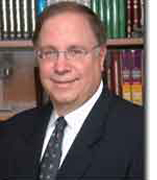 ENGLEWOOD, New Jersey — “There is reason to believe that [the president] cherished the illusion that presumably he, and he alone, as head of the United States, could bring about a settlement –if not a reconciliation—between Arabs and Jews. I remember muttering to myself as I left the White House after hearing the President discourse in rambling fashion about Middle Eastern Affairs, ‘I‘ve read of men who thought they might be King of the Jews and other men who thought they might be King of the Arabs, but this is the first time I ‘ve listened to a man who dreamt of being King of both the Jews and Arabs.’”1 ENGLEWOOD, New Jersey — “There is reason to believe that [the president] cherished the illusion that presumably he, and he alone, as head of the United States, could bring about a settlement –if not a reconciliation—between Arabs and Jews. I remember muttering to myself as I left the White House after hearing the President discourse in rambling fashion about Middle Eastern Affairs, ‘I‘ve read of men who thought they might be King of the Jews and other men who thought they might be King of the Arabs, but this is the first time I ‘ve listened to a man who dreamt of being King of both the Jews and Arabs.’”1
Herbert Feis, a State Department economic advisor, did not say this about President Obama’s address in Cairo in June 2009, but after Franklin D. Roosevelt met with Ibn Saud, King of Saudi Arabia, in February 1945. Roosevelt wanted the Arabs to allow thousands of Jews from Europe to immigrate to Palestine to which Ibn Saud responded, “Arabs would choose to die rather than yield their land to Jews.”2
George Antonius, an Arab nationalist, reiterated this point when he said, “no room can be made in Palestine for a second nation except by dislodging or exterminating the nation in possession.”3
Attempts to solve the Arab/Israeli conflict regularly fail because of the refusal to acknowledge that this dispute has never been about borders, territory or settlements, but about the Arabs refusal to recognize Israel’s right to exist. “The struggle with the Zionist enemy is not a matter of borders, but touches on the very existence of the Zionist entity,” declared an Arab spokesman.4
Unlike the Nazis who carefully concealed the Final Solution, Hamas and the Palestine Authority openly avow their intentions in their Charter and Covenant and in the Arab media which is available in English on the Internet on MEMRI and the Palestinian Media Watch.
For Hamas liberating all of Palestine to establish an Islamic state requires a holy war against Israel. Anyone daring to sign away even “a grain of sand in Palestine in favor of the enemies of God…who have seized the blessed land” should have their “hand be cut off.”5
Coercing Israel to make concessions and accept a two-state solution will not bring peace to the region. One-sided concessions have convinced the Arabs of the rightness of their policies and the efficacy of using violence to cleanse the country of Jews and Christians.
What compelling reason do Arabs have to stop launching rockets indiscriminately into Israeli cities, refuting the Jewish connection to the land of Israel, destroying artifacts and Jewish holy sites, denying the Holocaust, dehumanizing Jews in their media, textbooks, educational system, political discourse, religious sermons by portraying them as Satan, sons of apes and pigs, a cancer, and using children as homicide bombers, if the West does not hold them accountable?
Instead of demanding that Arabs cease their incitements and attacks, the U.S issues meaningless statements of condemnation, and then grants them foreign aid, arms and military training.
The U.S. pressures Israel to make goodwill gestures in “peace negotiations,” yet Israel has never been the aggressor. Is there any example in history where a victor withdraws from territory when the defeated party does not sue for peace, admits there will never be any reconciliation, declares they will not concede the victor’s right to exist, and labors relentlessly to destroy him? 5
When Israel opens her border check-points as an act of goodwill, the Arabs dispatch homicide bombers to maim and
Go to the top of right column
| |
kill Israeli civilians. After Arab terrorists are released from Israeli prisons, they revert to murdering Jews.
Comparing the plight of the Arabs with that of African Americans is a distortion of history and demeans the experiences of the millions of Africans who were brutally abducted from their homes, transported under inhuman conditions aboard slave ships and exposed to torture, murder and rape.
Nothing remotely like this has ever occurred with the Arabs in Israel. Had the Arabs not attacked the Jews before and after Israel was established, they would not be displaced persons today.
If we are to learn from history, we must transmit what actually transpired and not allow those with their own agenda or ignorance to obscure what occurred.
Whether it is naiveté, self-delusion or hubris, a number of U.S. presidents and diplomats have assumed that their powers of persuasion could modify fiercely held beliefs about the sanctity of Arab land. Such reasoning has consistently failed.
Those claiming that Jews have a moral obligation to cede land to the Arabs do not understand Israel’s legal right to exist as a Jewish state. That right was granted by the British in the Balfour Declaration in November 1917 and later recognized under international law at the San Remo Conference on April 24, 1920 by Great Britain, France, Italy and Japan (who defeated the Ottoman Empire and divided up the empire), the Mandate for Palestine and the Franco—British Boundary Convention of December 23, 1920, as the Jewish National Home.
There are no comparable legal documents conferring the same right on the Arabs living in Palestine at that time or since. 6 Which other country would relinquish land that is legally theirs to anyone, let alone to a people engaged in internecine warfare, who cannot even live in peace among themselves?
The West has not learned that Israel represents all that is abhorred about the U.S. and Europe—a free and open democratic society, and an ethical system encouraging individual expression and independence.7 Through appeasement the U.S. and the West have enabled the Arabs to continue what Ben-Gurion called a “permanent war” against the Jewish people.
This latest drive to establish separate Arab and Jewish states will fail because as Yasser Arafat said, “We don’t want peace, we want victory. Peace for us means Israel’s destruction and nothing else. What you call peace is peace for Israel…. For us it is shame and injustice. We shall fight on to victory. Even for decades, for generations, if necessary.”8
1. Herbert Feis, The Birth of Israel: The Tousled Diplomatic Bed (New York: W.W. Norton, Inc. 1969):16-17.
2. Charles E. Bohlen, Witness to History 1929-1969 (New York: W.W. Norton, Inc. 1973):203-204.
3. George Antonius, The Arab Awakening, the Story of the Arab National
Movement (New York: Capricorn Books, 1965): 412.
4. (Kuwait News Agency, May 31, 1986), quoted in Arieh Stav, Peace: The Arabian Caricature: A Study of Anti-Semitic Imagery (New York: Gefen Publishing House, 1999):78.
5. Jacob L.Talmon, Israel Among The Nations (London: Weidenfeld and Nicolson, 1970), 172.
6. Lloyd George, The Truth About The Peace Treaties vol. II, (London: Gollancz Ltd, 1938),1149-1201; Howard Grief, The Legal Foundation And Borders Of Israel Under International Law (Jerusalem: Mazo Publishers, 2008): 136-147, 493.
7. Ruth Wisse, “The UN’s Jewish Problem,” Weekly Standard (April 8, 2002).
8. Oriana Fallaci, “An Oriana Fallaci Interview: Yasir Arafat,” The New Republic (November 16, 1974), 10.
| |
|
|
Return to top

Ahmadinejad vs. Moussavi: tweedledee vs. tweedledum
|
By Jonathan Spyer
HERZLIYA, Israel—One would need a heart of stone not to be moved by the scenes currently emerging from Iran: Hundreds of thousands of youthful demonstrators, taking to the streets to express their frustration at the restrictions of life under a theocratic oligarchy - with the communications revolution enlisted to bypass the heavy hand of the regime's censors.
Nevertheless, at such a time, it is particularly important to employ the tools of cool and dispassionate analysis. It is therefore worth keeping three crucial facts in mind, when considering the events in Iran. Firstly, in so far as a real struggle for power is currently taking place, it is taking place within the boundaries of the Islamist regime, and not against it. Secondly, if one were to imagine for a moment the emergence of a real, popular leadership opposed to the regime, and were then to assess its chances of success, the following conclusion would be inescapable: at the present time, the regime possesses both the will and the means to ensure its survival. Thirdly, no such popular leadership currently exists.
Consider: Mir Hossein Moussavi, the hero of the demonstrators, is a product of the Islamic revolution of 1979 no less than is Mahmoud Ahmedinejad. Moussavi served in the now defunct position of prime minister of Iran in the period 1981-89. In the latter part of that period, in 1987, the Iranian nuclear program was revived. Moussavi is a committed supporter of the Iranian system of governance known as Vilayet a-Faqih (rule of the jurisprudent), and of the severe and brutal repression which this system brings in its wake. He represents the establishment, conservative wing of the regime, as personified by former President Akbar Hashemi Rafsanjani.
This element has been singled out for particular criticism by the younger radical conservatives or 'principalists', of whom Mahmoud Ahmedinejad is the most well known representative. The principalists, strongly represented in the powerful Revolutionary Guards Corps, portray Moussavi and his allies as venal, cynical and corrupt. The Rafsanjani camp, meanwhile, consider Ahmedinejad and his allies to be irresponsible fanatics.
In the course of the campaign, Moussavi found it useful to seek the support of those Iranians who have failed to benefit from Ahmedinejad's populist economic policies. He also sought to represent the many Iranians who are embarrassed and dismayed at Ahmedinejad's expressions of Holocaust denial and populist anti-Americanism.
The demonstrations currently taking place are demanding the annulment of the election results, in the almost undoubtedly accurate belief that the results were falsified in order to ensure the victory of Mahmoud Ahmedinejad in the first round of voting. The principalists have the support of the chief holder of power in Iran, Supreme Leader Ali Khamenei, who appears to have intervened in their candidate's favor.
But both Moussavi and Ahmedinejad, ultimately, are representatives of rival streams within the ruling elite.
Moussavi is no less supportive of the Iranian nuclear drive and of Iranian support for Hizballah and Hamas than is Ahmedinejad. Nor would his election have made any
Go to the top of right column
|
|
difference to policy in these areas. Khamenei, who holds his (unelected) position for life, makes the decisions on questions of strategy.
Some have claimed that the identity of Moussavi is no longer the key issue. It is being said that events have now taken on a momentum of their own. The huge crowds in the streets are seen as heralding a classic pre-revolutionary situation – in which the discontented masses go to the streets to challenge their rulers, posing the question of who holds power and by what right.Moussavi is no less supportive of the Iranian nuclear drive and of Iranian support for Hizballah and Hamas than is Ahmedinejad. Nor would his election have made any difference to policy in these areas. Khamenei, who holds his (unelected) position for life, makes the decisions on questions of strategy.
Some have claimed that the identity of Moussavi is no longer the key issue. It is being said that events have now taken on a momentum of their own. The huge crowds in the streets are seen as heralding a classic pre-revolutionary situation – in which the discontented masses go to the streets to challenge their rulers, posing the question of who holds power and by what right.
When the question of power is posed in the streets, two questions become paramount. Does the ruling element have the will to order a large-scale repression of popular unrest should the need arise, and will the security forces obey the regime if such an order is given? If the answer to either of these questions is negative, then the regime is in real danger.
Regarding the first – the Islamist regime in Iran, whatever its internal fissures and its many failures - is not a tired, uncertain, decadent and crumbling affair. Its leaders believe in their right to rule and possess a large popular constituency.
Regarding the second question - Supreme Leader Ali Khamenei and the regime he leads hold the unquestioned loyalty of those military and security forces sometimes termed the 'deep state'. The more excited western media reports notwithstanding, no evidence has yet emerged from Iran to contradict this picture.
Hence, when it comes to the ultimate test, the regime appears to be equipped with the means to preserve its rule.
Events will not, however, necessarily reach the stage of brutal repression. To make a revolution, an additional required factor is a revolutionary leadership. Such a leadership does not currently exist in Iran. There is no force or party, outside of the various factions within the regime itself, able to capitalize on the current popular anger. One should also not lose sight of the fact that even in terms of the struggle between the presidential candidates, Ahmedinejad undoubtedly possesses a very considerable popular base among less wealthy, religiously pious Iranians.
All these facts taken together point, regrettably, in the direction of a single conclusion. At the present time, the Islamist regime in Iran is almost certainly not in danger.
.
|
|
|
Go to top of page

|

FROM THE KULANU QUARTERLY
Texas A&M Hillel establishes Huánuco, Jewish community
|
By Rabbi Peter Tarlow
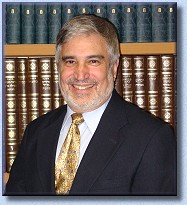 COLLEGE STATION, Texas—
About a year ago, I wrote an article for Kulanu (that was reprinted by San Diego Jewish World) about my journey to the Peruvian Highland city of Huánuco and its nascent Jewish community. In March of 2008, I traveled to Huánuco with five of my Hillel students to found a Jewish community about 400 kilometers from Peru’s capital city of Lima. During the past year these efforts began to root and enough progress was made to return to Huánuco, this time with eleven more students. COLLEGE STATION, Texas—
About a year ago, I wrote an article for Kulanu (that was reprinted by San Diego Jewish World) about my journey to the Peruvian Highland city of Huánuco and its nascent Jewish community. In March of 2008, I traveled to Huánuco with five of my Hillel students to found a Jewish community about 400 kilometers from Peru’s capital city of Lima. During the past year these efforts began to root and enough progress was made to return to Huánuco, this time with eleven more students.
As reported last year, the city and province of Huánuco (about 400 kilometers northeast of Lima) had an active 19th century Jewish community. At the time Aschanazic Jews, who had come there for business, made up most of the community. These were people who had traveled up the Amazon River from Brazil, married, and were forced by 19th century Peruvian law to register their children as Catholics. The local Jewish community reports that there was even a rabbi in Huánuco, who, it was reported, died in a boating accident. During the latter part of the 19th century and into the early 20th century other Jews found their way to Huánuco. These people were either Crypto-Jews (Lima was the Inquisition’s headquarters during Spanish rule in South America) or people who no longer accepted Catholicism and were seeking other religious expressions. With the advent of computers and modern genealogy, many of these people began to research their roots and rediscovered their Jewish heritage
These e-missions of rediscovery may have been the impetus for the formation of a new Jewish community last year. After many discussions and numerous telephone calls, about 20 people came together for a formal conversion ceremony, and in March of 2008 the community was legally recognized as a full religious community by the government. This recognition provided more than mere legality; it also permitted the community to own property and apply for national grants.
It is against this background that Texas A&M Hillel sent an additional 11 students to Huánuco during its Spring break in March 2009. This year’s students came with three clear goals to accomplish -- (1) strengthen the ties of the Huánuco Jewish community with Texas A&M Hillel, (2) provide the needed man/woman power to create synagogue life in Huánuco, and (3) permit another 14 people to convert to Judaism.
The Hillel students arrived in Huánuco after a 25-hour bus ride from Lima due to mudslides. Once there, I divided the students into three groups. One group worked on building such items as a new bimah for the synagogue, one group painted walls, and five of the men aided me in questioning candidates for admission into Judaism. The following day (with the weather now permitting) all candidates were taken to a mountain
| |
mikveh for immersion and the ritual of tipat dam was then performed on all of the men (all were previously circumcised by a Jewish doctor).
On March 18th the Jewish community of Huánuco grew by 14 people. The conversion and reentry ceremony were performed in their new synagogue. That evening the first Jewish wedding to take place in Huánuco in over 150 years was also celebrated. To add to the miracle of this rebirth, Jews and potential Jews from around Peru have contacted Huánuco’s now functioning Jewish community.
Needless to say, there are still many challenges ahead for Huánuco’s Jewish community. There is the need to establish an orderly budget process, to divide community responsibilities, and to develop an ongoing plan for Jewish education. However, there is now, despite all of the difficulties, a functioning Jewish community in Huánuco. Unlike the 19th century community, this is a legal community that can register both births and marriages. Full services are planned this year for the Jewish High Holidays.


|
Return to top

National/ International Jewish News Roundup
|
AIPAC seeks funds for its lobbying
efforts in behalf of Israel's defense
WASHINGTON, D.C.—The American Israel Public Affairs Committee (AIPAC) has issued an appeal to friends of Israel for support in its efforts to secure passage of the Fiscal Year 2010 Foreign Aid Bill, which includes $2.775 billion in security assistance for Israel.
"Israel is finding it increasingly difficult - and expensive - to defend itself from an ever growing array of dangerous threats," according to Jonathan E. Missner, AIPAC's director of national affairs and development.
"From the potential of a nuclear-armed Iran to ongoing rocket attacks from Hamas terrorists, Israel must spend more on defense as a percentage of GDP than any major industrialized nation to ensure the safety of its citizens," he said.
He appealed for financial contributions to assist AIPAC in its job of keeping Congress and the Obama administration informed about Israel and the Middle East situation. Here is the link to AIPAC's online donation form.
16 Yemenite Jews fly
to Israel in secrecy
LOS ANGELES—Boaz Meir, western regional director of the Jewish Agency for Israel, sent along the following advisory from the Jerusale Post:
Sixteen Yemenite Jews alighted late Sunday afternoon at the Ben Gurion Airport. The group of new olim, composed of three families, is to initially reside in Jewish Agency absorption centers.
The group was brought to Israel by the Jewish Agency in secrecy, and the identity of the new arrivals is being kept confidential in order to maintain the safety of family members left behind in Yemen.
State and federal officeholders
will attend RJC's 'Summer Bash'
SANTA MONICA, California--The Republican Jewish Coalition has scheduled a "Summer Bash" beginning at 6 p.m., Sunday, June 28, at Loew's Santa Monica Beach Hotel in Santa Monica. Confirmed speakers who'll be enjoying "great kosher food and fantastic friends" include U.S. Senator John Thune of South Dakota, Members of Congress Kevin McCarthy of California and Dean Heller of Nevada, California Insurance Commissioner Steve Poizner (a candidate for governor), and Assemblyman Chuck Devore. Tickets cost $125 per person. To purchase tickets, click here.
UCSD's Rahimi becoming media commentator about Iran situation
LA JOLLA, California (Press Release)—A University of California, San Diego professor has emerged as a leading scholarly authority on voter sentiment and new media in Iran in the wake of the June 12 election in which Iran's official news agency announced that incumbent Mahmoud Ahmadinejad had won about two-thirds of the votes cast.
Babak Rahimi, an assistant professor of literature at UC San Diego and an expert on Islamic and Iranian studies, traveled from San Diego to Iran in March to study the impact of the Internet on Iranian electoral politics. “The most exciting type of academic fieldwork is the one led by serendipity,” Rahimi wrote in a note to his UC San Diego colleagues. “I feel that what I have learned in the last few weeks is largely due to the unfolding of events or moments I least expected.”
Since his arrival in Iran three months ago, Rahimi has traveled throughout the Islamic nation of about 70 million people, interviewing common citizens, political activists and those involved with new media. His research goal has been to produce a scholarly study on the role of the Internet in Iran’s politics.
In an email exchange the 36-year old scholar was asked about his safety. “The only way that I feel safe here in Tehran is by staying at home – though it can be a bit difficult at times,” he wrote. “Self-isolation can bring a sense of emptiness amid a Tehrani summer.”
But Rahimi has not cocooned himself entirely because he continues to do his research: “My objective has been to write an article (or possibly a book) on the impact of the Internet on Iranian electoral politics.”
In the meantime, he has been a calm explanatory voice on the elections, describing anti-government demonstrations and analyzing the political struggles in dozens of interviews with media outlets such as CNN, National Public Radio, Public Broadcasting Service, the Los Angeles Times and others.
Rahimi is skeptical of the government-announced results indicating that incumbent President Ahmadinejad had won re-election, but he has also maintained scholarly detachment in reporting his observations and fact-finding. For example, in the June 19 Los Angeles Times, Rahimi wrote: “One major claim of those in power is that although there is some dissent in the cities, the countryside voted solidly for Ahmadinejad, which accounts for his win. But in my pre-election fieldwork in a number of southern provinces, I observed major tensions between provincial officials –especially the local imams – and the Ahmadinejad administration in Tehran. I saw far lower levels of support for the president than I had expected. In fact, I heard some of the most ferocious objections to the administration in the rural regions, where the dwindling economy is hitting the local populations hard. As one young Bushehr shopkeeper put it: ‘That idiot thinks he can buy our votes. He does not care for us.’”
In a country where two-thirds of the people are under the age of 30, Rahimi observed opposition candidates relying on the Internet to reach voters, employing Twitter, Facebook and YouTube. “The technologies not only spoke to new voters, they had the added benefit of allowing candidates and their supporters to more easily avoid scrutiny and censorship,” he said.
Taking a realistic view in his Los Angeles Times article, Rahimi wrote, “It is perhaps no surprise that people who were able to express themselves more strongly during the campaign than in the past are not willing to sit back now and accept election results they believe were rigged. But it's hard to predict what will happen next. The new generation of protesters, most of them born after the 1979 revolution, believes at this point that it has the momentum, that its members are riding the crest of a powerful wave of history into a more democratic future. And though this view may seem naive to older, more cynical Iranians, no one can deny the energy of the moment.”
Though primarily an Iranian/Islamic studies expert, Rahimi is also an authority on Shi'i Islam; Medieval and (early) modern Iranian culture and society; the country’s public sphere, civil society; democracy and modernity.
Rahimi earned a bachelor’s degree at UC San Diego and has a doctorate from the European University Institute in Florence, Italy. He has also studied at the University of Nottingham, where he obtained a master’s degree in ancient and medieval philosophy. He also studied at the London School of Economics and Political Science, where he was a visiting fellow in the department of anthropology.
Rahimi has written numerous articles on culture, religion and politics and regularly writes on contemporary Iraqi and Iranian politics. He has been the recipient of a fellowship from the National Endowment for the Humanities and he received the Jean Monnet Fellowship at the European University Institute. He also was a senior fellow at the United States Institute of Peace in Washington D.C., where he conducted research on the institutional contribution of Shi’i political organizations to the creation of a vibrant civil society in post-Baathist Iraq.
Rahimi expects to remain in Iran until late June when he will return to La Jolla. “If all goes well, I hope to return to Iran later in the summer staying until September,” he said.
Survivors often transmit Holocaust experiences nonverbally to family
HAIFA, Israel (Press Release)—Aspects of knowing about a parent's or grandparent's Holocaust experiences and traumas are transmitted to other members of the family through unspoken and sometimes unintentional behaviors in the home. This leads to a "knowledge" and presence of the Holocaust that, despite remaining unspoken, contributes to the life experiences and constitutes the personality of the person exposed to it.
This has been shown in a new ethnographic study carried out by an anthropologist at the University of Haifa and recently published in the peer-reviewed academic journal Current Anthropology. Dr. Carol Kidron of the Department of Sociology and Anthropology at the University of Haifa interviewed fifty-five children of Holocaust survivors. The large majority revealed that their only knowledge of their parents' Holocaust experiences were transmitted to them via silent, taken-for-granted everyday interpersonal interaction.
Go to top of right column
|
|
The children were able to get a sense of their parents' experiences through the unspoken. One recalled hearing a parent's nightly cries. Another remembered wondering about the numbers branded on a parent's arm, and others described watching their parents reminiscing or looking through old photographs or memorabilia.
In contrast to previous and well-known psychological studies published so far, which have suggested that the children of Holocaust survivors suffer effects of posttraumatic stress disorder (PTSD), Dr. Kidron was able to conclude that 80 percent of the interviewees did not perceive themselves as suffering from such effects. Moreover, the "knowledge", the silent day-to-day presence of Holocaust memories that the descendents of Holocaust survivors gleaned, sufficed: As children, they frequently felt no need to question their parents in depth. They had no desire to document their families' Holocaust history. A prominent 95 percent of the interviewees assured that they were not interested in telling the story of their parents' Holocaust experiences in the public domain, or their own. "By forming an experiential matrix, these silent traces maintain an intimate and nonpathological presence of the Holocaust death-world in the everyday life-world," Dr. Kidron explained.
This study disputes the more common views that a survivor's silence results in a damaged relationship with his or her children, or in the absence of an inter-generational Holocaust legacy transmitted to the second generation. It is precisely the presence of the Holocaust past in everyday silent interaction, rather than the vocal transmission of Holocaust testimony or history, that sustains and commemorates the genocidal past in the private familial domain. The accounts provided by the interviewees in this study "depict the dynamic, normative, and self-imposed silent presence of the Holocaust death-world interwoven with everyday life" and indicate that children's relationships with their survivor parents were equally normative.
Dr. Kidron presented the above study, alongside her present extended comparative research on Cambodian Canadian children of survivors of the Cambodian genocide, at a conference hosted by the University of Haifa: "The Holocaust: Its traumatic and inter-generational effects in comparison to other persecutions and its reflection in the arts."
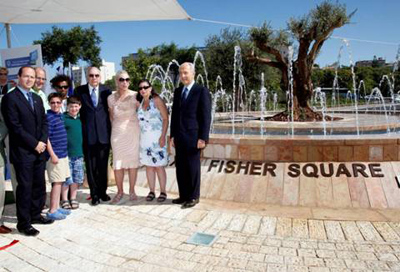
Max Fisher Square dedicated in Jerusalem by Peres, Birkat, others
JERUSALEM (Press Release)--Some 200 people attended the inauguration of a square in memory of Max Fisher, paying tribute to of one of the great American Jewish leaders of the 20th century and founder and first Chairman of the Jewish Agency’s Board of Governors, at a ceremony hosted by the Jerusalem Municipality and Jewish Agency Monday (June 22) in Jerusalem.
The Max Fisher Square, a circular fountain with an olive tree at its center built of reddish Jerusalem stone, is located at a traffic intersection front of Binyanei Ha’Uma convention center, near Jaffa Road at the entrance to the city. The ceremony was attended by Israel’s President Shimon Peres, Jerusalem Mayor Nir Barkat, past Jewish Agency Chairmen of the Executive Ambassador Sallai Meridor and MK Zeev Bielski, Jewish Agency Chairman of the Board Richard Pearlstone, Robert Aronson, CEO of the Jewish Federation of Metropolitan Detroit and Jane Sherman, daughter of the late Max Fisher and member of the Jewish Agency Executive.
“Max Fisher was born an elder statesman,” President Peres said at the ceremony. “He built an American-Israeli relationship that was unprecedented. He won the trust of all leaders, Republican and Democratic presidents in the US, and left and right in Israel.”
Max Fisher, who passed away in Detroit in 2005 at the age of 96, was a leading force in the American Jewish community, and advised US presidents, starting with Eisenhower, and Israeli prime ministers. Fisher was instrumental in facilitating every large wave of immigration to Israel – from the immigration of Jews from Arab countries in the ‘50s, to Ethiopian immigration, to his very significant involvement in Operation Exodus, which saw the immigration to Israel of a million Jews from the Soviet Union -- both vis-à-vis US administrations, and as a leader of the American Jewish community, which provided much of the funding for the immigration and absorption effort. Fisher also galvanized US support for Israel after the Six Day and Yom Kippur Wars; and he helped launch Project Renewal, the Jewish Agency’s initiative to rehabilitate distressed neighborhoods and another large-scale Israel-Diaspora endeavor, at the behest of then-Prime Minister Menachem Begin in 1978.
Fisher, who held leadership roles in many major Jewish organizations, was instrumental in forming the Board of Governors of the Jewish Agency, and served as its first chairman for over a decade, from 1971 to 1983.
Born in Pittsburgh in 1908 to immigrants from Russia, Fisher grew up in Salem, Ohio, and attended Ohio State University on a football scholarship. He moved to Detroit in 1933 to join his father's oil reclamation business, and then formed his own gasoline company which became one of the largest independent oil companies in the Midwest.
Max Fisher is survived by 5 children, grand- and great-grand children. His daughter, Jane Sherman, who attended the ceremony with her family, is a Jewish Agency Board of Governors member since 1983, and member of the Jewish Agency executive.
“The Max Fisher Square is appropriately located at a crossroads in Jerusalem, Israel’s capital,” said Jeff Kaye, Director of Resource Development and Public Affairs at the Jewish Agency. “Max was a leader who built bridges at the crossroads of Jewish life -- between Israel and the Diaspora; between generations; and between Jews of the free world and those living in countries of oppression.”
|
|
San Diego County Jewish Community news roundup
|
|
Chabad schedules 3-part series on
Jewish views of death and practices
CARLSBAD, California (Press Release)--A three-part lecture series on the Jewish spirtual and practical approaches toward death will be held at Chabad of La Costa at 7:30 p.m. on three consecutive Tuesdays, July 14, 21, and 28, according to Rabbi Yeruchem Eilfort.
Part I will be presented by Rabbi Eilfort and will detail the Jewish view on the afterlife. Does life end when the body dies? What are souls and where do they go? Do Jews believe in Heaven and Hell and if so, what do we know about them? Are our ancestors aware of us even now? Do families reunite in the World to Come? Why do we believe so strongly in burial as opposed to cremation? These and many more questions will be addressed.
Part II will see Rabbi Eilfort joined by Larry Kranz, Director of Am Israel Mortuary of San Diego. The practical components of death will be covered. How much will burial and cemetery plots cost? Where should I buy cemetery property? What is the role of the rabbi, the mortuary, and the cemetery? What can be prepared in advance and how is that done? Are there ways of saving money? What is the difference between a kosher burial to non kosher? Why choose the kosher options?
Part III will entail the financial considerations of death and how to prepare one’s estate in advance. Rabbi Eilfort will be joined by Alan Green is an insurance expert who will talk about various financial products available to protect the interests of individuals even after death. Orin Green (Alan’s son) is a certified financial planner with Ameriprise (a division of American Express) and he too will present crucial information and advice.
Reservations should be made via RabbiE@ChabadatLaCosta.com or by calling 760-943-8891.
Soille Hebrew Day School holds
fundraiser at Hall of Champions
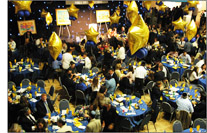 SAN DIEGO (Press Release)—The Hall of Champions resounded Sunday, June 7, with the happy conversations of 400 Hebrew Day supporters who collectively championed the cause of Torah education and helped raise $145,000 in one night! The friendships, some of which span the full 46 year history of Hebrew Day School; the many multi-generation families who first attended as parents and now as grandparents; the community leaders who came to acknowledge that the effects of Jewish education are far reaching and long lasting; and the parents sharing the achievements of their children and the wonder at how much growth is possible during a single school year. SAN DIEGO (Press Release)—The Hall of Champions resounded Sunday, June 7, with the happy conversations of 400 Hebrew Day supporters who collectively championed the cause of Torah education and helped raise $145,000 in one night! The friendships, some of which span the full 46 year history of Hebrew Day School; the many multi-generation families who first attended as parents and now as grandparents; the community leaders who came to acknowledge that the effects of Jewish education are far reaching and long lasting; and the parents sharing the achievements of their children and the wonder at how much growth is possible during a single school year.
Everyone enjoyed and was touched by a moving video created by alumnus Samuel Kahn celebrating the school’s three honorees, Rabbi Hollander, Marcia Tatz Wollner and Edith Wiseman z”l. Also everyone enjoyed the delicious food from Shalom Catering, beautiful artwork created by the students and Morah Avril, and amazing Chinese auction organized by Shiri Puhovitsky. Thankfully, there is much positive energy and good feelings which will carry Hebrew Day School forward, and help to raise an outstanding generation of Jewish children, and then another.
Thank you again to our fabulous event co-chairs Brian and Celena Zimmerman who worked closely with Audrey Jacobs. Together
Go to top of right column
| |
evening enjoyable for everyone. We are so blessed to have such a supportive and giving community of parents and supporters.
LETTER TO THE EDITOR
U.S. is too timid in Iran
Editor, San Diego Jewish World:
Gary Rotto is correct to warn against the U.S.becoming the issue in Iran by intruding too much, but no one is suggesting sending troops or such, just the forthright encouragement deserved by the oppressed and expected of America. France's Sarkozy has been more forthright than Obama. The Iran regime has tried to accuse us anyway, but its people know better, and none in Iran is protesting France.
So, the real issue is how much is too much by America. It is not too much to affirm our values and support the values of self-determination by Iranians. President Obama has been too timid. That is a betrayal of both ourselves and of those, still most, in the world whose only hope is looking to us as a beacon rather than disinterested or more interested in ongoing business with oppressors.
Bush wasn't perfect, witness reticence toward Vietnam's oppression of minorities and the religious. But, still, 50-million Muslims were freed from extreme oppression by Bush's policies and, despite the hand-wringing and opposition of many, Iraq is turning out a far reduced threat to world peace and our security and its peoples are launched on self-determination.
Excessive reticence goes hand-in-hand with the moral equivalency on Israel exhibited by President Obama. Question: Do you really think that the Obama administration would be energetic in helping Israel to defend itself? Only 6% of Israelis do, and that was even before his latest going for ice cream while Iranians are brutally bludgeoned and murdered in the streets.
Bruce Kesler
Encinitas
Changes reported at XLNC1, San Diego Metropolitan magazine
SAN DIEGO--The binational classical radio station XLNC-1, feeling the economic pinch, has cancelled three programs: "New York Philharmonic This Week Live! At the Concertgebow, and Great Operas...Great Moments," and will fill the time with more of its regular programming, according to Lisette Atala, executive director of the station station.
"In order to bring these programs back we need to find a sponsor who specifically wants to underwrite these programs to compensate staff time and production cost," Atala said. "The financial situation has really affected all arts organizations in the country and we are no exception. We apologize if this upsets loyal listeners of these programs, and we will certainly take into consideration all comments you may have."
Additionally, Atala announced that the "Business Report" with Gary Shaw has ended following Shaw's sale of San Diego Metropolitan magazine and related media businesses to Bob and Rebecca Page, former publishers of the Rancho Santa Fe Review.
|
Go to top of page
|

MUSIC OF OUR PEOPLE
Yism'chu sung by Harold Orbach offers Shabbat delight
|
|
By Cantor Sheldon F. Merel
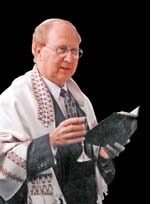 SAN DIEGO—Yism’chu is chanted on Friday evening, and contains twenty-four Hebrew words said to correspond to the twenty four hours of Shabbat. “Those who keep the Sabbath and call it a delight shall rejoice in God’s kingdom. All who hallow the seventh day shall be gladdened by Your goodness. This day is Israel’s festival of the spirit, sanctified and blessed by You, the most precious of days, and a symbol of the joy of creation.) SAN DIEGO—Yism’chu is chanted on Friday evening, and contains twenty-four Hebrew words said to correspond to the twenty four hours of Shabbat. “Those who keep the Sabbath and call it a delight shall rejoice in God’s kingdom. All who hallow the seventh day shall be gladdened by Your goodness. This day is Israel’s festival of the spirit, sanctified and blessed by You, the most precious of days, and a symbol of the joy of creation.)
I am pleased to introduce the wonderful voice and persona of Harold Orbach, my good friend, colleague and former class mate at the School of Sacred Music –Hebrew Union College in New York City, the first school in America to train cantors. Harold and I were in the second graduating class, and were among the early pioneers who helped by our example to open new cantorial pulpits throughout the Reform movement. In the early ‘50s, few Reform temples had cantors, so we, along with other early graduates, served as role models and mentors to many graduates who followed us.
Harold Orbach is an innovative cantor who during his long and distinguished career embraced the “New Sound” of religion, as well as bringing rich cantorial music of the old masters to his Detroit congregation and community. The New York Times has described Orbach’s voice as “sweet-toned singing,” and the Cincinnati Post portrayed him as “a great tenor voice that shines in every repertoire.” The Metropolitan Opera News wrote that he sang with “rich and vibrant tones.”
During his 50 years as cantor, Orbach has appeared in an amazing and diverse array of performances as cantor and concert artist. Just a few of the many countries and places he has concertized are: Germany, Cuba, Japan, Israel, New York's Lincoln Center, Los Angeles, Curacao and the Holocaust Memorial Museum in Washington, D.C. He recently retired from Temple Israel in West Bloomfield, Michigan where he served for 41 years with great distinction. Harold received a Masters Degree at the University of Oklahoma while serving his first congregation in Tulsa, and in 1998 was awarded an honorary doctorate degree from his alma mater, the Hebrew Union College-Jewish Institute of Religion’s School of Sacred
Harold Orbach was born March 31, 1931 in Dusseldorf, Germany and immigrated to America in 1940 after being smuggled out of Germany via the Kindertransport to England, and then to America. He served his first congregation as a cantor at the age of fifteen, and his concert career began with a performance at New York’s Town Hall at age 18.
Go to the top of right column
| |
they spent countless hours spearheading the entire event. Thank you also to all the volunteers who worked so hard to make the
He is a charter member of the American Conference of Cantors, and also a past president. In 2001, he received the Metropolitan Detroit’s Bernard L. Maas Foundation prize for Achievement in Jewish Culture and Continuity, and his voice appears on fourteen recordings and has been used as background for several films.


| |
| |
|

Bible in Pop Culture: heaven and earth were finished
|
|
Genesis 2:1
Thus the heaven and the earth were finished, and all their array.
A Japanese movie, shown at right, told the story of two Samurais in an existential battle.
Do you have a photo that you think illustrates how a biblical verse has worked its way into pop culture. Please send it to us for possible publication in this series, "The Bible in Pop Culture."
You may send your jpg photo for posting online to us at San Diego Jewish World, emailing it to editor@sandiegojewishheritage.com.
If possible, please send it at 72dpi resolution and 400 pixels wide. Please include the name of the photographer, the date and place the photo was taken, and any other relevant caption information.
For our growing "Pop Bible" collection please see Bible in pop culture index
| |

JEWS FOR JUDAISM WRITING CONTEST
In Berlin synagogue, Yom Kippur is a day of 'atunement'
|
By Joanna Wright
Yom Kippur
The synagogue doors stand tall and foreign
tucked away between two back alleys of Berlin
a city I love but do not quite understand
it's a pity, this poem
will not capture the raw, ringing power
of high holy days
but there are ways to try, I suppose
because God only knows
we answer questions with more questions
doing our best to wrestle with this beautiful life and
the meaning of the word Mensch
I slip through those doors and into a bench in the back row
an observer and a participant, I'm a stranger here
in search of a Yom Kippur home
far away from my own
and as the music starts and the voices rise
I realize
I found it
These are my people
it's not a thought I've composed, just grasping at comfort
it's an ancient sensation, emanating
from the walls of this temple that has known brutal history
and from the faces of those around me
glowing with a fervent desire to be bruised by God
wrestlers, we are
we find wholeness in bruised places
and traces of the sacred in each other's faces
tonight
we wear white
become nothing but soul
Go to the top of right column
|
|
yearning to return to the light, to an
authentic poet in an imperfect world
beginning to forgive
each other and
ourselves
entered
by that energy, divine and indefinable
we remember what it means to
belong to a community
fill a room with broken symphonies
and fill our bodies with those half-built melodies
a mix of soil and mysticism
Hebrew words we understand by blood
but cannot translate
the veil between worlds is
tissue paper right now
tickling our skin with tender, windless breath
it rustles, between dying and living
which are separate only in our imagination
ancestors nestle themselves beside us
cloaked
but so close to the touch
when that microscopic distance hurts too much
when we learn that we are not invincible
we are fully alive
I cried for my Zayde today
he died eight months ago
and my eyes know he's gone
but the well inside me
is still full of tears and his matzah ball soup
today, though
is not just about grief or regrets or missing or forgetting
it's about letting go, letting out, letting in
to be entered and picked clean
by the moon that knows no ideology
today, we've created the hope
that there's a communal safe-keeping deeper
than well-kept secrets
no parking meter in spirit's sanctuary
they call it a day of atonement
but really
it's atunement
today we are
millions of prayers
simultaneously trying to summarize
oneness.
| |
|

Return to top

THE JEWISH CITIZEN
Book review: A bubbe wins friends for new kid at school
|
Hello (Shalom), My Name is Sasha Feinstein, Story and Illustrations by Antonia Harlan; Book Surge Publishing (www.booksurge.com), IBSN 978-1-4392-0878-6
By Donald H. Harrison
 SAN DIEGO—
This is an uplifting story for pre-teen readerS, with a simple enough plot. Sasha thrives in his old neighborhood, where he has many friends. But his bubbe has difficulty climbing up and down the staircase to their apartment, so his parents have decided to move to a one-level house. The new home is accessible to the synagogue at which Sasha will become a bar mitzvah, but he will have to change schools. Because Sasha is an unfamiliar name, his new classmates—most of them Gentiles—want to call him “Stephen.” However, he insists on being called “Sasha,” and he finds it hard to make friends. SAN DIEGO—
This is an uplifting story for pre-teen readerS, with a simple enough plot. Sasha thrives in his old neighborhood, where he has many friends. But his bubbe has difficulty climbing up and down the staircase to their apartment, so his parents have decided to move to a one-level house. The new home is accessible to the synagogue at which Sasha will become a bar mitzvah, but he will have to change schools. Because Sasha is an unfamiliar name, his new classmates—most of them Gentiles—want to call him “Stephen.” However, he insists on being called “Sasha,” and he finds it hard to make friends.
At that point the teacher begins a unit on the Holocaust and asks if anyone knows about it. Sasha volunteers that his grandparents were both survivors. Eventually, the teacher prevails upon him to ask his bubbe to talk to the class. Sasha hesitates, but eventually gives in. The grandmother comes and tells about her life in Europe, and survival at Auschwitz. She shows the school children the tattoo on her arm. Moved by “bubbe’s” speech, the classmates look at Sasha in a new way. Instead of being a pariah, he is welcomed into his classmates’ ranks. They even surprise him by attending the service at his congregation where he becomes a bar mitzvah.
There are several problems with this book. There are numerous digressions, making the text quite wordy. For
to the top of right column |
|

young readers, the heavy type—especially on those pages without illustrations—can be uninviting or overwhelming. The type font changes mid-book, making the production seem less than professional. There is a glossary of Hebrew and Yiddish words in the back, some fact sheets on the Holocaust, recipes, and even directions for playing various games like two-square and mother-may-I. Possibly author Antonia Harlan just wanted to be informative, but this everything-but-the-kitchen-sink approach weighs down the book unnecessarily.
Bottom line: the message is heartwarming, but in its present format the book may discourage all but the most avid young reader.
|
|
|
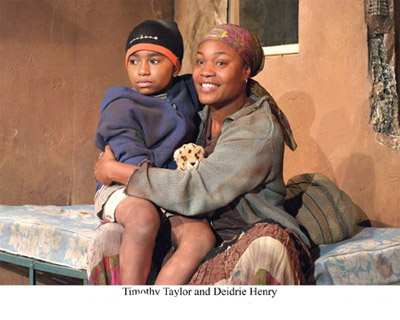 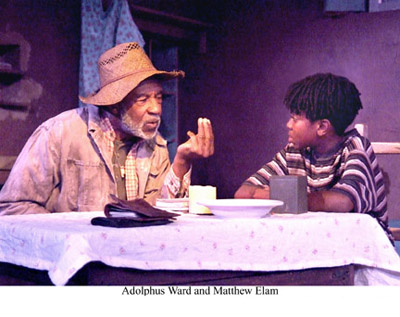
Coming Home, another winner from Athol Fugard
|
By Cynthia Citron
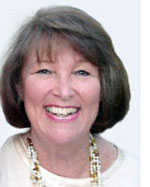 WEST HOLLYWOOD, California— You might think that a 77-year-old playwright who has written a highly-acclaimed, prize-winning play (and sometimes two) nearly every year for 53 years might be running out of steam by now. Well, not so with South African/ English/ American playwright Athol Fugard, who has just written what, in my view, is the best work of his career. And that’s saying a lot for the man who wrote such blockbuster dramas as The Blood Knot, Boesman and Lena, Sizwe Bansi is Dead, Master Harold and the Boys and 2004’s Exits and Entrances. WEST HOLLYWOOD, California— You might think that a 77-year-old playwright who has written a highly-acclaimed, prize-winning play (and sometimes two) nearly every year for 53 years might be running out of steam by now. Well, not so with South African/ English/ American playwright Athol Fugard, who has just written what, in my view, is the best work of his career. And that’s saying a lot for the man who wrote such blockbuster dramas as The Blood Knot, Boesman and Lena, Sizwe Bansi is Dead, Master Harold and the Boys and 2004’s Exits and Entrances.
Coming Home, Fugard’s latest play is now having its West Coast premiere at the theater that he calls his “artistic home in the United States”: The Fountain Theatre in West Hollywood. Once again, Stephen Sachs, the Jewish, co-artistic director of the Fountain, has taken on the pleasant task of directing Fugard’s play with one of the best teams of performers to be seen on any stage in a very long time.
The woman who is "Coming Home” is Deidrie Henry, who was so electrifying in the Pulitzer Prize-contending play Yellowman in 2002. Here again she is mesmerizing as Fugard’s heroine, Veronica Jonkers, who is returning to her childhood home after a futile decade in Capetown trying to succeed as a singer. (In real life, Henry’s sweetly melodic voice won her an Outstanding Vocalist award for her cabaret debut in New York.)
Veronica brings with her a son (played by Timothy Taylor as a five-year-old and Matthew Elam at 10) and striking memories of the years she spent in this dilapidated shanty with her loving grandfather, Oupa Jonkers (Adolphus Ward), and her childhood friend, Alfred Witbooi (Thomas Silcott), an exuberant man-child who is still brimming over with kindness and concern. In two extraordinary performances, the men, Ward and Silcott, match the phenomenal Deidrie Henry beat for beat. It’s a brilliant tour de force a trois right before your eyes.
Oupa, who has died and left his home to Veronica, turns up periodically as a wise old ghost, delivering, in one instance, a symphony in words about the life-affirming joy of planting a seed and watching it grow. Veronica, who has obviously learned much from his perennial optimism, is able to maintain a brave face even when she tells the sympathetic Alfred the sad tales of the life she had lived in Capetown before she came home.
Coming Home is a familiarly predictable tale, set in post-apartheid South Africa, when the newly freed peoples are
Go to the top of right column
|
|
beginning to realize that all their extravagant hopes and dreams for a bright new future are not going to be immediately forthcoming. But among this distinctive family, the dignity, the kindness, the love, and even the hope still remains.
Coming Home is set in a one-room tin-roofed shack designed by Laura Fine Hawkes that manages to be both wretched and homey at the same time. It’s a wonderful setting for this warm and beautiful play.
I can’t begin to tell you how much I loved this play and its performers, and how emphatically I recommend it to you. If I were prone to rate these things, I would give it a firm five papayas! Or, as they call them in South Africa, five “paw-paws.”
Coming Home will continue at the Fountain Theatre, the home of always-outstanding productions, at 5060 Fountain Avenue, in Los Angeles, Thursdays, Fridays, and Saturdays at 8 p.m. and Sundays at 2 through August 29th. Call (323) 663-1525 for reservations.


|
|
|
Go to top of page
Adventures in San Diego Jewish History
|
|
Highland Springs Resort Starts Another Gala Summer Season
Southwestern Jewish Press May 15, 1953, page 8
Every yeasr this vacation spot gains more and more in popularity with fun loving people enjoying themselves in a friendly atmosphere under the sun. It is truly a country resort with city conveniences.
The resort features excellent cuisine, dancing to a fine band, planned entertainment by a trained social director, swimming in a pool heated to eighty degrees, horseback riding, tennis, volleyball; and all other types of outdoor sports. In addition they offer you the facilities of a fully equipped bath house with highly experienced masseur and masseuse.
In the past the owners and managers Mr. and Mrs. Elmer Rosin have played hosts to such prominent personages from this city as Mr. and Mrs. Sid Rose, Mr. and Mrs. Goodman, the Fiesta Club, and many others.
They plan to make this year a banner one and are going all out to see that their clientele enjoy themselves more than ever.
Israel Film To Be
Shown at Ken Theatre
Southwestern Jewish Press May 15, 1953, page 8
”Faithful City,” the first film to be made with all English dialogue on location in Israel will be shown soon at the Ken Theatre, 4061 Adams Ave.
The atmosphere surrounding the filming of this movie had an international flavor. Producer-Director Josef Leytes was born in Poland. In the cast are American Jamie Smith; Dutch Didi Ramati; English John Slater; Russian Ben Josef; Austrian Rachel Markus, and native-born Israeli, Dina Peskin.
The RKO-Radio release is based on the problems facing both children and those in charge of them when a handful of war orphans are sent to a children’s shelter in Israel. Authentic reactions were not difficult to achieve as the cast was made up of those children whose experiences paralleled the screen action.
It is presented by M. Yona Friendman.
Local Resident Wins
Jewish Lit. Award
Southwestern Jewish Press May 15, 1953, page 8
Bernard Chombeau, 42, blind choir-director of 3428 Talbot St. was declared the winner of International Literary Competition for the Blind sponsored by the Jewish Braille Review, Dr. Jacob Fried, Editor, announced today.
Pointing out that as many sightless non-Jews as Jews, and as many blind citizens of other countries as Americans entered the competition, Dr. Fried called the character of the response “a goodwill lesson in interfaith, interracial and international relations which the sighted nationals and diplomats of a troubled and divided world would do well to learn.”
Mr. Chombreau, a member of the Organists Guild of America, won the prose prize with an article on “what Louis Braille means to Me.” He has been employed for the past 11 years as organist for Skateland on Front St.
Other winners included entries from Ireland, England and Scotland.
Lucille Rubel Mourned by All
Southwestern Jewish Press May 29, 1953, page 1
Mrs. Harris Rubel, 58, a resident here for 30 years, was laid to rest Monday, May 25. Services were conducted by Rabbi Morton J. Cohn at the Benbough Mortuary, and final rites were held at the Cypress View Mausoleum.
Survivors are her husband, Harris Rubel, and son, Comdr. David M. Rubel of La Jolla.
Go to the top of right column
| Lucille Rubel was active in many charitable organizations in the community. She was a past president of Jolly Sixteen, a member of the board of the Big Sister League, and since its inception, active in the Hebrew Home for the Aged. Other organizations included the Temple Beth Israel Sisterhood, Council of Jewish Women, Services for New Americans, and the U.S.O. Her devoted work through the war years endeared her to the servicemen to whom she was known as “Queenie.”
The large attendance at her rites testified to the high esteem and to the deep loss suffered in her passing.
In lieu of flowers the family requests that contributions be made to the Leon Rubel Memorial Fund, started many years ago by the Jolly 16 on the death of her son. The money will be used for young people and checks should be made out to Mrs. Carl Henoff, 4246 Ridgeway Dr.
Fund In Final Plea For
Cash In Emergency Drive
Southwestern Jewish Press May 29, 1953, page 1
An SOS went out from Campaign headquarters to all members of the Jewish community who have jnot as yet subscribed to the 1953 United Jewish Fund, to do so now without further delay.
This was in keeping with the plea of the National United Jewish Appeal which has issued a call for an emergency cash meeting to take place June 6 and 7, according to Campaign leaders.
San Diego’s contribution to the current campaign of the United Jewish Fund reached to a total of $182,000 from 1704 contributors this week as Key workers intensified their efforts to bring the campaign to a successful close as quickly as possible.
With the announcement of this total to date Carl M. Esenoff and Milton Y. Roberts, Co-chairmen of the Campaign, pointed out that the amount is still short of the needs of the Fund’s beneficiary agencies, both here in San Diego, the United States, and Overseas.
“The amount in hand to date represents generous giving by a large number of people, but our solicitation must continue until we have received a sum commensurate with the requirements of the agencies that depend on us for support,” Esenoff and Roberts stated.
As usual the success of the campaign depends on the gifts of the more than 250 prospects still remaining, which represents over $35,000 in gifts, according to the chairmen. Workers will make an intensive effort during the next two weeks to secure all of these gifts to bring the campaign total up to the expected minimum of $210,000 for 1953.
In announcing the total the chairmen included $36,439 raised by the Women’s Division under the leadership of Mrs. Abe Nasatir; and $7,492 brought by the Christian Committee led by Graydon Hoffman.
You can make your gift to the United Jewish Fund now by mailing it to 333 Plaza, or by calling Main 5172 and a worker will come out to see you immediately. Join with other San Diegans in shouldering your Jewish philanthropic responsibilities through the United Jewish Fund of San Diego.

|
|
|
|
| | | | | | |

